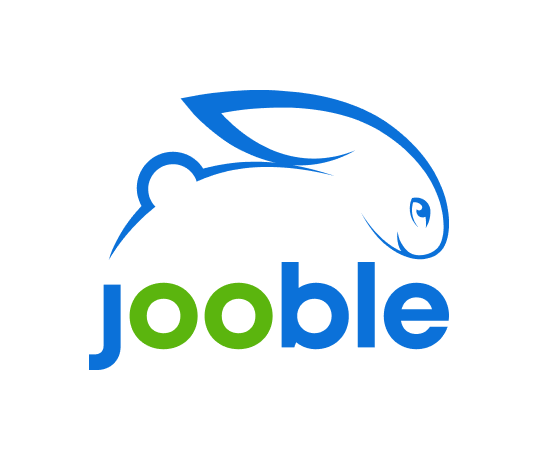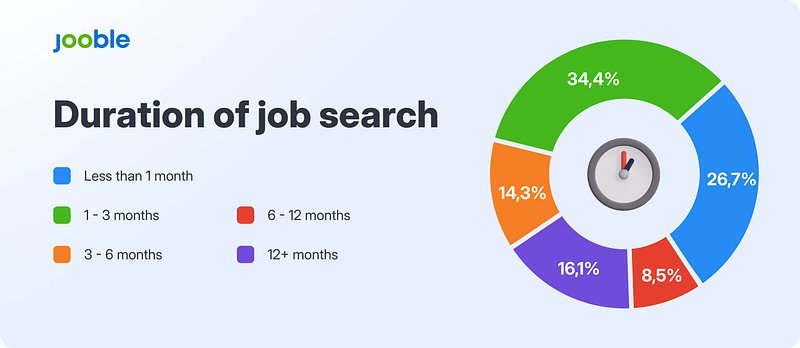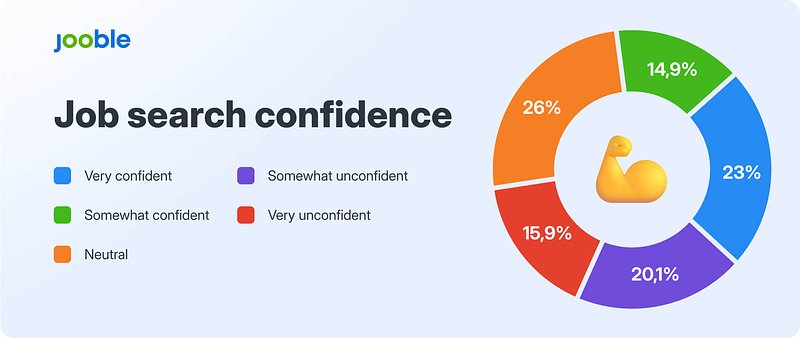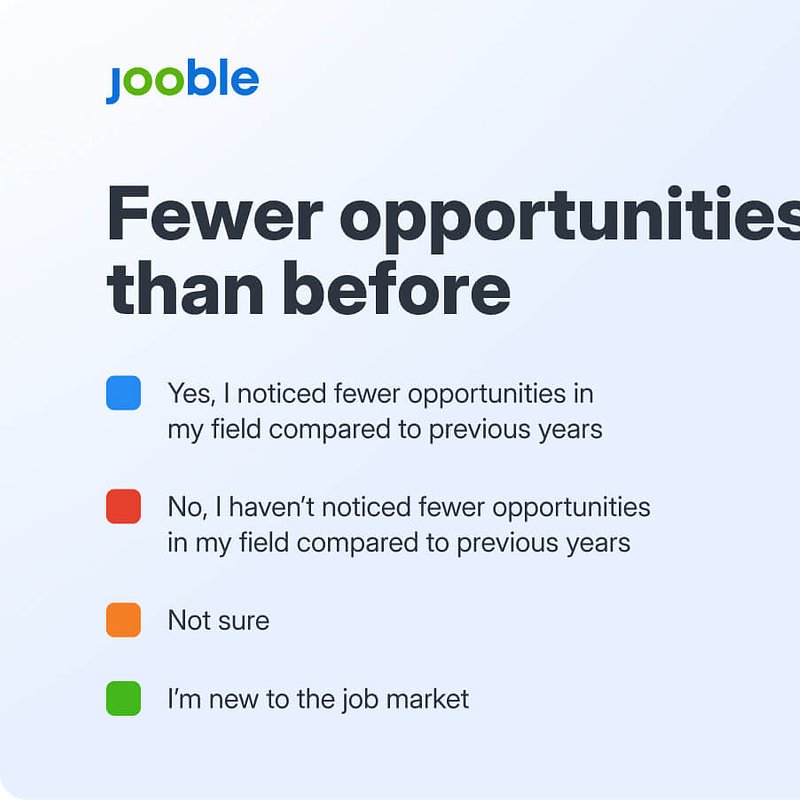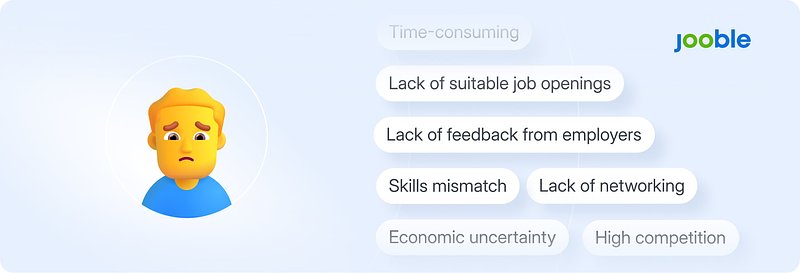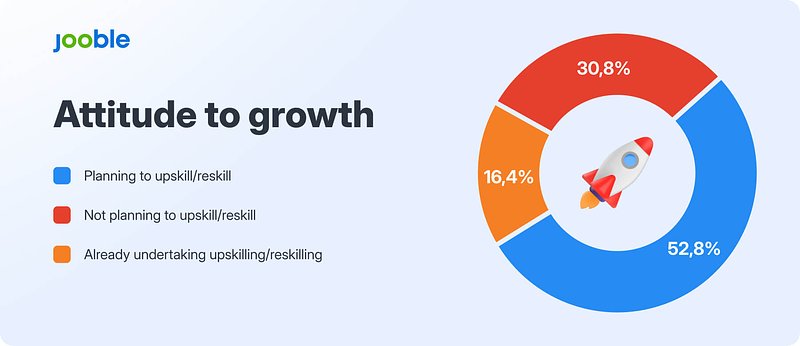- 1 in 6 job seekers in the UK have been searching for work for over a year.
- Confidence is mixed – only 23% feel very confident about finding work, while 36% report being somewhat or very unconfident.
- Job seekers face significant barriers, led by lack of suitable openings and no feedback from employers, alongside competition, skills mismatch, and lengthy application processes.
The UK labour market continues to evolve amid economic uncertainty and rapid technological change. To better understand the perspectives of job seekers, Jooble, one of the largest job search platforms, conducted a nationwide survey among candidates in the UK. The survey highlights job seekers’ experiences with applications, challenges, and expectations for the future.
The Intensity of the Job Search
The results show that job seekers in the UK face varying lengths of time in their search for employment. More than a quarter of respondents (26.7%) had been actively searching for less than one month, while the largest share, 34.4%, had been looking for work between one and three months. For others, the process has taken longer: 14.3% have been searching for three to six months, and 8.5% for six to twelve months. Notably, 16.1% of participants reported that their job search has lasted over a year.
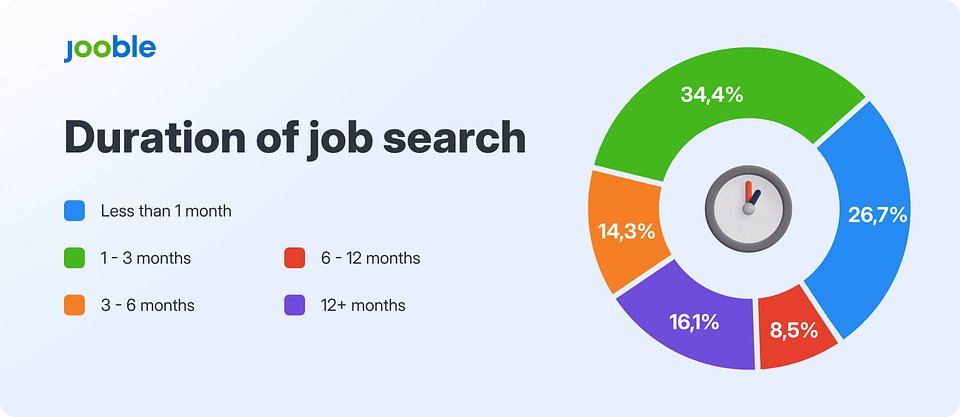
Job search duration: 34% of UK candidates look 1–3 months, while 16% search over a year.
In terms of job applications, the majority of job seekers reported a relatively modest number per week. More than half of respondents (56.2%) submit between one and five applications weekly. A further 20.9% apply to six to ten roles, and 10.8% submit between eleven and twenty applications. While smaller groups were more intensive in their efforts, 7.3% applied to more than thirty jobs each week, and 4.9% submitted between twenty-one and thirty applications.
Expectations vs. Realities in the Labour Market
Job seekers’ expectations about their chances of finding work show a wide range of confidence levels, reflecting both optimism and concern in today’s labour market. Just under a quarter (23%) said they felt very confident about finding suitable employment, while 14.9% described themselves as somewhat confident. At the same time, 26% reported feeling neutral, 20.1% somewhat unconfident, and 15.9% very unconfident about their prospects.
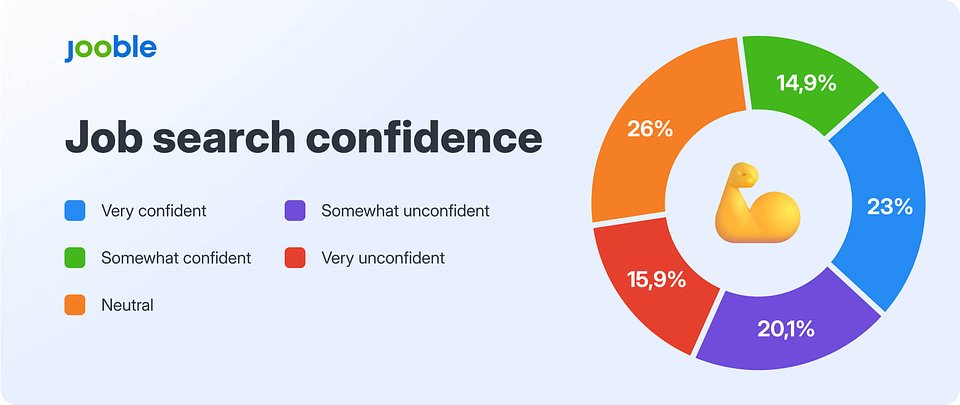
Only 23% of UK job seekers feel very confident about finding work, while 36% report low confidence.
This uncertainty is also reflected in how long candidates expect their job search to take. While 20.4% anticipated securing a role in less than a month and almost a third (32.9%) believed it would take one to three months, others were less optimistic. About 20.4% expected the process to last three to six months, 10% predicted six to twelve months, and 14.9% feared it could take more than a year.
When asked about the difficulties they face in their search, candidates pointed to a wide range of recurring challenges, including:
- Lack of suitable job openings – 25.9%
- Lack of feedback from employers – 21.9%
- High competition with other applicants – 17.3%
- Skills mismatch – 9.3%
- Time-consuming application processes – 8.8%
- Limited networking opportunities – 4.4%
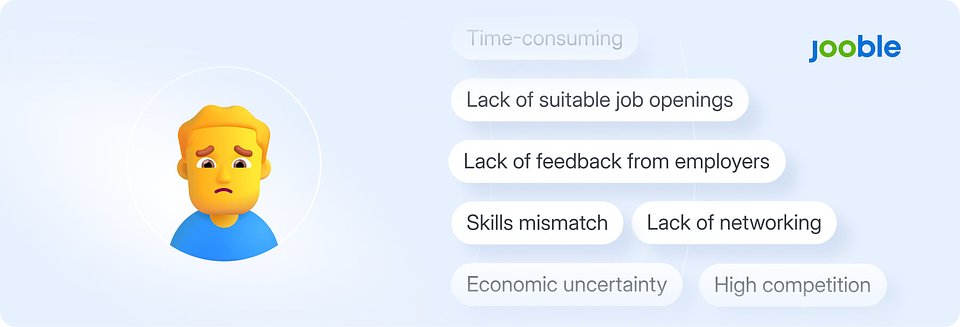
Obstacles UK job seekers face: From lack of suitable openings and feedback from employers to skills mismatches, high competition, and economic uncertainty.
Beyonсd these primary obstacles, respondents also pointed to a range of personal and structural barriers. These included health issues and disabilities, returning to work after long breaks, unhelpful recruitment processes, low salaries, and location or mobility constraints. Together, these highlight the diverse challenges that many UK job seekers face in addition to the main obstacles identified above.
How the Economy and Technology Shape Job Searches
Broader economic conditions are playing a major role in shaping how candidates experience the job search. Almost half of respondents (46.9%) said that recent economic changes, such as unemployment trends, automation, or AI integration, had already affected their ability to find work. A similar share, 46.3%, reported noticing fewer opportunities in their field compared to previous years. Meanwhile, 23.6% said they were new to the labour market and therefore could not compare the current situation with earlier experiences.
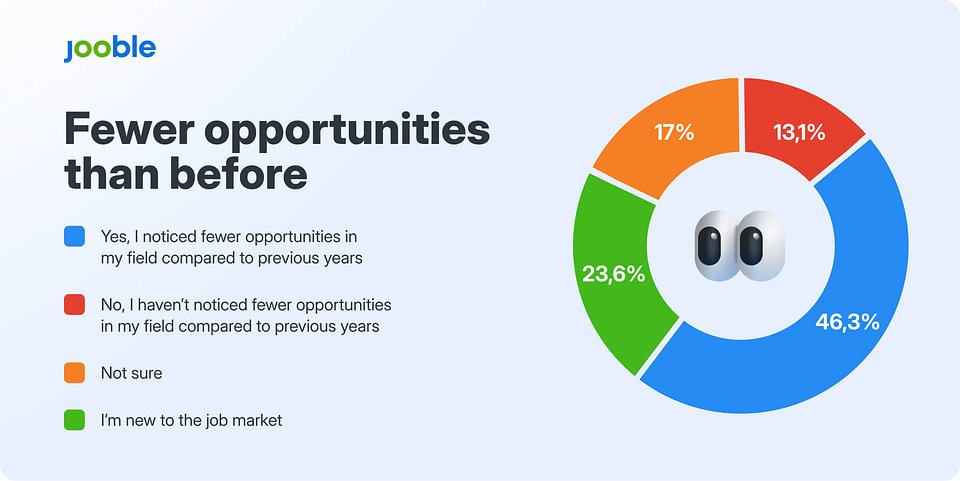
Nearly half (46.3%) of UK job seekers say there are fewer opportunities in their field compared to previous years.
Alongside these economic pressures, the growing influence of automation and artificial intelligence has created mixed feelings among job seekers. Nearly a quarter of respondents (23.4%) said they were significantly concerned that AI may negatively affect their employment prospects, and a further 23.6% were somewhat concerned. However, 26.8% said they were not particularly worried, 7.8% were not concerned at all, and 18.4% reported that they did not feel informed enough to assess the potential impact.
At the same time, the survey revealed a proactive attitude towards professional development. A majority of 52.8% of participants said they were considering upskilling or reskilling to improve their chances of employment, and 16.4% stated that they were already undertaking such training.
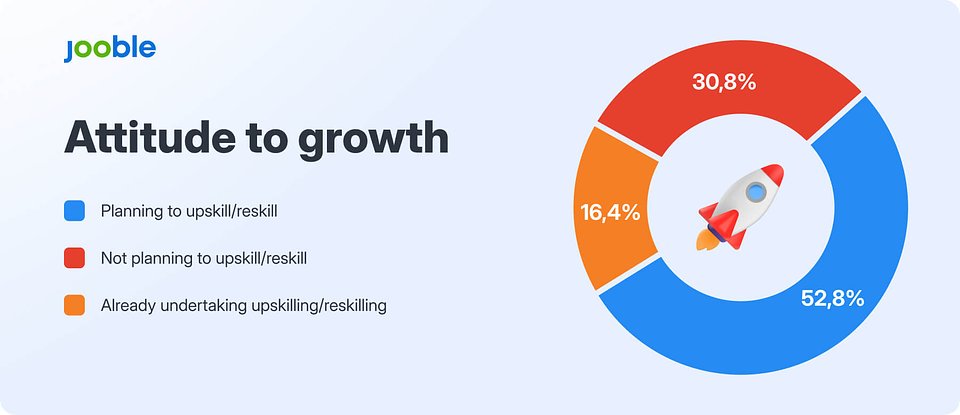
Upskilling mindset: 52.8% of UK job seekers plan to reskill, while 16.4% are already doing so.
Methodology
The survey was conducted by Jooble among UK job seekers from 25 June to 2 September 2025. In total, 1,029 respondents participated. The survey was anonymous, and the statistical margin of error does not exceed 3%.
The survey covered a wide range of age groups. Almost one in five respondents (19.2%) were aged 16 to 24, while 17.2% fell into the 25–34 bracket. The largest groups were those aged 35–49 (26.8%) and 50–64 (31.2%), with 5.7% aged over 65.
In terms of education, 6.9% reported having no formal qualifications, while 41.5% had completed secondary education. A further 16.9% held vocational qualifications, 25.8% had a higher education degree, and 8.9% possessed postgraduate qualifications such as a Master’s or PhD.
The survey also highlighted the industries in which candidates are most actively seeking employment. Retail accounted for the largest share, with 15% of respondents targeting the sector, followed by healthcare (9.9%), manufacturing (8.5%) and hospitality (8.4%). Other popular sectors included IT and technology (6.9%), engineering (4.2%), education (3.5%), and marketing and advertising (3.5%).
About Jooble
Jooble is a global product-based IT company. Its main product is an international job search website that millions in 66 countries use daily. The website aggregates thousands of job openings from various sources on a single page. It is one of the top 10 most popular employment resources in terms of traffic in the Jobs And Employment segment, according to SimilarWeb.
